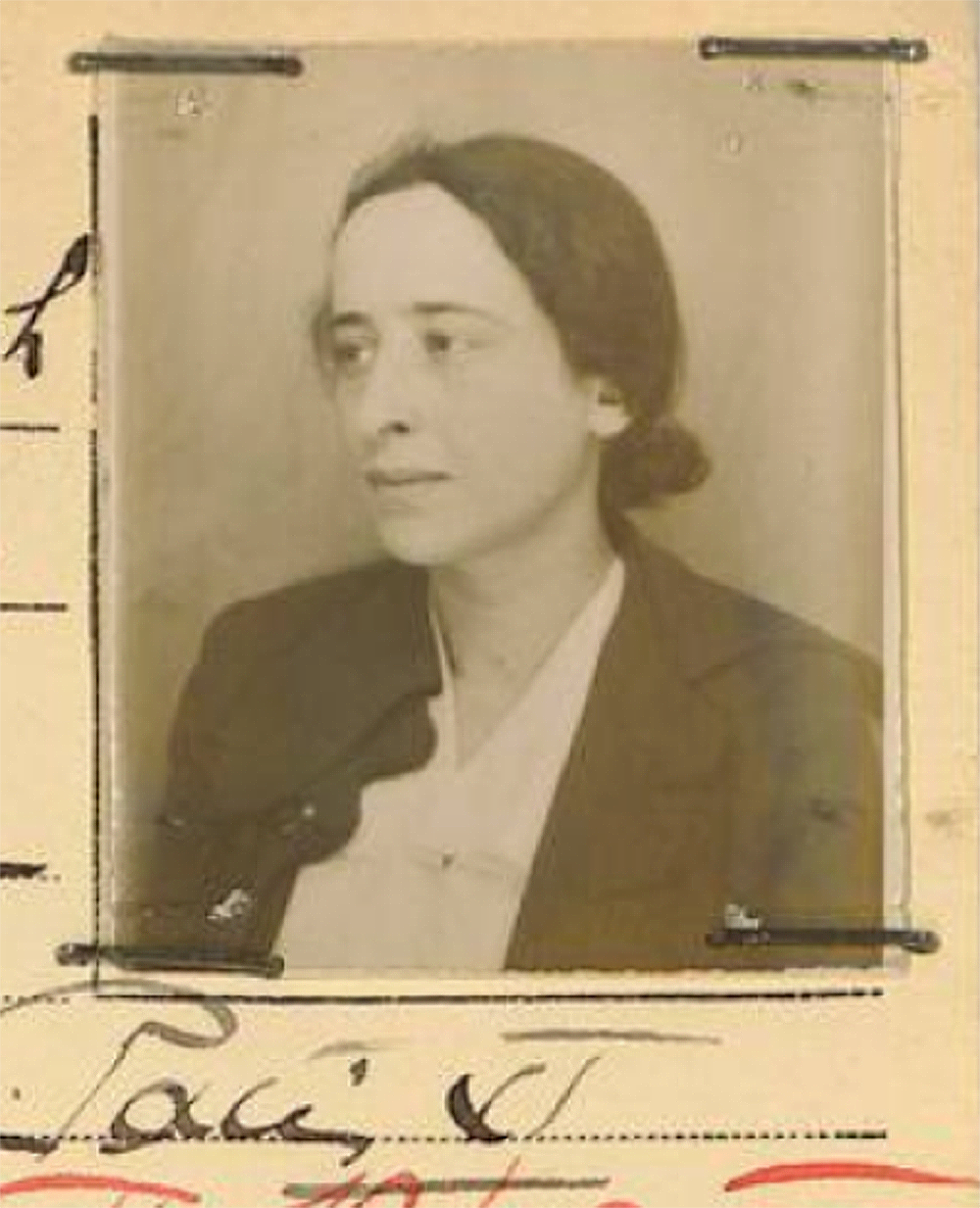
Librarians classifying books at the Library of Congress, 1933. Library of Congress, Prints and Photographs Division.
Each issue of Lapham’s Quarterly, celebrating its tenth anniversary this year, addresses a theme—States of War, States of Mind, Food, Youth, Animals—by drawing on primary sources throughout history, finding the rhymes and dissonances in how these topics have played out and been perceived over the centuries. In this new series, we open up the sleuthing beyond our staff and four annual themes by letting historians and writers share what they have come across in their recent visits to the archives.
This week’s selection comes from Ken Krimstein, author of The Three Escapes of Hannah Arendt: A Tyranny of Truth, now available from Bloomsbury.
I had been hard at work on my graphic novel/biography of the philosopher/political thinker Hannah Arendt for just over a year. My days were end-to-end researching, drawing, writing, making notecards, and doing storyboards, and things were really coming along.
But while the information I was collecting was thrilling, the visual source material had hit a wall. The same photographs of Hannah kept coming up, over and over and over, a well-worn collection of about twenty images on permanent repeat. Her with a cigarette. Her with another cigarette. Her laying down with a cigarette. Her standing up with a cigarette.
With every biography I read, every essay I devoured, I saw evidence of a fresh, vibrant, unbridled spirit—part Albert Einstein part Marlon Brando in The Wild One, who, when asked, “What are you protesting against?” replies, “What’ve you got?” But visually, I was in a rut, wading in a sea of sameness and, to use Hannah’s most loathed word, cliché.
And then one day, the Bibliothèque Nationale de France, after cleaning out their files, posts this. Hannah’s freaking library card!
It felt like Hannah had just leapt eighty years out of the past, lit up a cigarette, and sat next to me at my desk. I wanted to light one up myself, but I don’t smoke.
What strikes me most is, well, her. A new look at her. A new angle. She’s thirty-three years old. The war hasn’t even started yet, although it will in a few weeks. She’ll soon be rounded up as an “enemy alien,” being German and all (even though she was without a passport, a stateless refugee).
And then there’s the look. Sad, pensive, more aquiline than I imagined. Angular even. And at a slightly rakish angle to the camera. These were the days when she was sharing a desk at the library with another freelance intellectual, her Berlin buddy—and cousin of her first husband—Walter Benjamin. (Had they just had lunch? What did they eat?)
But when Benjamin would be away from his desk at the library, flaneuring his way around Paris, collecting impressions for his Arcades Project, this Hannah would race over to the offices of the Jewish Aliyah and struggle to get the paperwork done for Jewish children to emigrate to the relative safety of Tel Aviv, or Jerusalem, or Haifa.
No wonder she looks tired. But also determined. I print it up, zooming in at 300 percent. I dig out some masking tape and stick the card to the wall in front of my desk.

This is my Hannah now. Fresh. Alive. One escape down, two more to go.
The “engine,” and the fuel to power me through to the end of my book, is in gear. Thank goodness those French librarians don’t throw anything away!
Want to read more? Here are some past posts from this series:
• Katherine Benton-Cohen, historical adviser for the film Bisbee ’17
• Nicholas Smith, author of Kicks: The Great American Story of Sneakers
• Emily Ogden, author of Credulity: A Cultural History of U.S. Mesmerism
• Anna Clark, author of The Poisoned City: Flint’s Water and the American Urban Tragedy
• Christopher Bonanos, author of Flash: The Making of Weegee the Famous
• Philip Dray, author of The Fair Chase: The Epic Story of Hunting in America
• Elaine Weiss, author of The Woman’s Hour: The Great Fight to Win the Vote
• Elizabeth Catte, author of What You Are Getting Wrong About Appalachia
• Ben Austen, author of High-Risers: Cabrini-Green and the Fate of American Public Housing
